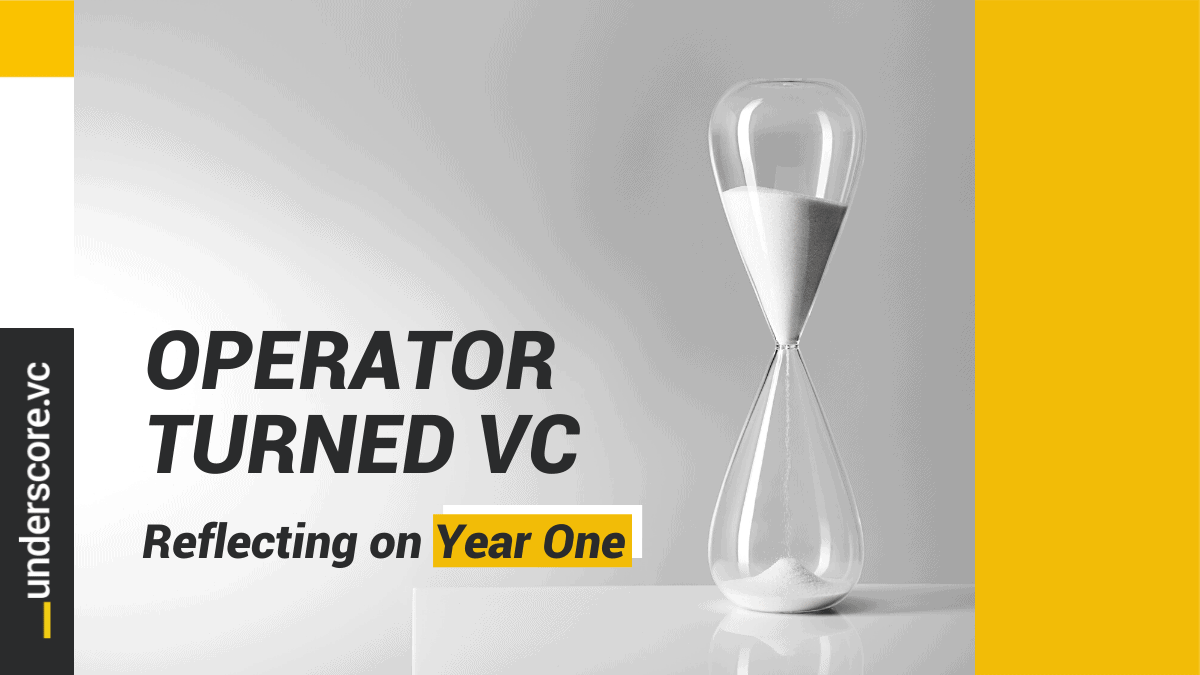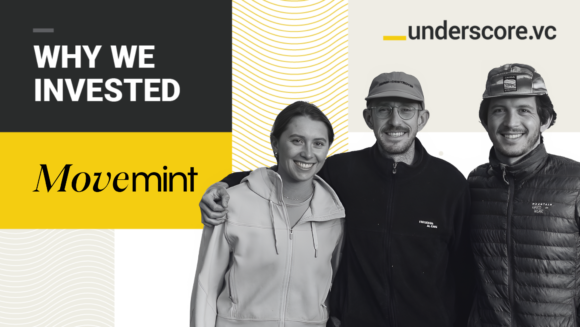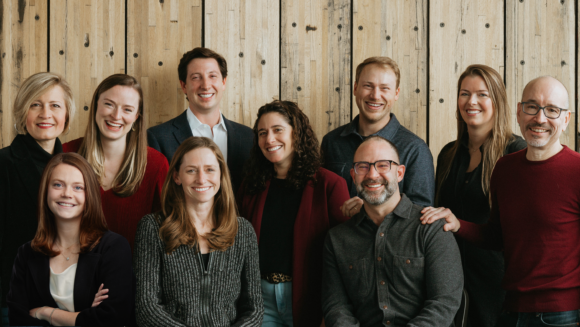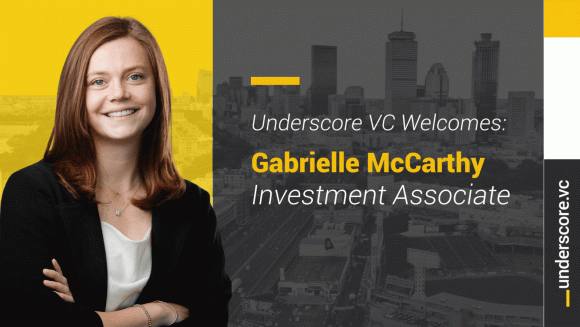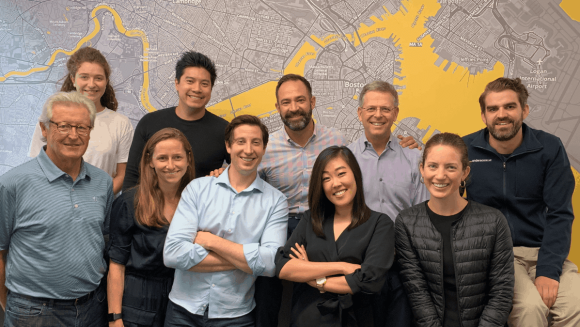I never planned on becoming a venture capitalist. It’s not that I had any particular disdain for the profession. Quite the opposite—I had a whole bunch of great VCs involved in the companies I founded and worked for. It’s just that after spending nearly my entire career as an operator at VC-backed startups, I figured that when I left PayPal, I would do it again.
For several reasons (which you can read about here), I pivoted and became a Partner at Underscore VC. At least once a week, I get asked what VC is like. Now that I’m a year in, here are my ramblings.
Can being a VC scratch the entrepreneurial itch?
Like many dyed-in-the-wool startup junkies, I craved the adrenaline of startup life. Closing big deals, near-death experiences, being in the foxhole with your colleagues, the thrill of an exit — had all become part of what I wanted out of my work life.
I needn’t have worried. While the thrill is more diffuse, it is spread across many companies instead of one. (Great for those of us with ADD!) I cherish the late-night calls from founders and am really enjoying the chance to get back to in-person board meetings, strategy jams, or just a drink and a chat.
Moving at market speed doesn’t mean taking shortcuts
Boy, did I jump into the business at a crazy time—especially in fintech. Before I started, I had this fantasy about outworking everyone else; I would dig deeper into each company, really get to know the founders over multiple face-to-face meetings, and spend hours poring over business models.
LOL… Instead, I have seen many great investment opportunities that already have a fistful of term sheets. Others, where I am fortunate enough to get involved early, are getting term sheets within a day or two of first meetings. A fund raise that used to take a couple of months or more when I was on the other side, sometimes gets done in a few days now!
Moving at market speed doesn’t mean taking shortcuts, but it does sometimes mean making the best decision possible with incomplete information. Of course, this is a characteristic of seed investing in general, but the truth is that we’re investing in people—and getting to know someone cannot be cut short.
Face-to-face time is still an important part of the equation
This I knew coming in, but my terrible pandemic timing meant that my entire first year was spent almost exclusively in remote meetings—with founders, my teammates, LPs—everyone.
This has been hard for me. Not only has the pace of investing compressed the timeline to get to know founders, but not getting to sit across a table from anyone feels like playing with one hand tied behind my back.
I think it’s been hard for founders as well. When I was learning more about Lendflow, it became clear that I needed to spend time face to face with the founders, who are based in Austin. Not only so I could get to know them, but more importantly, so they could get to know me. So, I double-masked and hopped on a plane to spend a day with them. There was no other way for both sides to get comfortable. Bonus: I also got my first round of vaccinations down there!
Now that things are slowly opening up and we’re all spending more time in the same room, this will always be part of my process. Yes, the efficiency of remote meetings is here to stay, but I do not plan on making many investments where some facetime isn’t part of the equation. It’s just too important.
Adjusting to the moving goalposts
So much has been said about this, that it’s hard for me to add much to the conversation. But I will say that as a VC in my rookie season, I have had to work very hard to balance market-condition reality with my desire to make sound financial investments on behalf of our limited partners.
Traditional thinking about valuation, ownership, portfolio construction, and returning liquidity to investors is evolving, and getting my arms around this has been a big part of my learning process. That said, discipline is critical. The goalposts may have moved, but adjusting my thinking and then sticking with my convictions and process has never been more important.
What if I suck at this?
As a product guy, I became very used to rapid feedback loops—often hours or days after launching a feature. I have to admit, it’s been hard to wrap my head around a feedback loop usually measured in years. It’s also become apparent that I may learn about my mistakes well before I get a strong signal on my successes.
Investing is a new gig for me, but helping build early-stage companies is not! And, while it’s still early, it’s clear that many of the things that made me a decent operator and entrepreneur are super helpful in VC.
For one, I made so many mistakes that I can definitely help save founders from doing some of the same dopey things I did. It also turns out that just being kind of old means I have a good network of folks that will take my calls. Realizing that I can actually contribute to early-stage company building is how I take little successes out of what is really a long game.
Is being a VC consistent with my value system?
OK, I made just as many “hey, looks like you joined the dark side” cracks as the next guy. And I admit, that early in my career, I looked at VC as a necessary evil. It wasn’t until I was in more senior roles, on boards, and founded a company, that I recognized the value an engaged, networked, expert VC can bring to a company. I want to become that guy.
Of course, I filtered for this when I began to think about a role in VC, and the Underscore gang made it easy. I joined because I felt we shared a value system that made it easy for me to make two simple commitments to myself on how I would show up in this role.
First, I am utterly transparent in my dealings with founders. This can be as simple as being clear about why I chose not to invest in a company or as complex as a detailed discussion on the nuances of a term sheet. Clearly, a financing relationship has competing interests, but the real goal is to build an awesome company and being a real partner to a founder, starts with trust.
Second, I work my butt off for our portfolio companies. Obviously, this has limits, and no founder wants their investors hanging around the office, but I need to be ready and willing to jump into the fray as needed. Whether it is networking, fundraising, hiring, sales, or mentoring, early-stage investors need to bring it. It’s the least we can do.
The net of it
So here I am, one year into my adventure. Despite most of my VC friends telling me to sit on my hands for a year lest I do something stupid, I’ve made four investments, two of which are public knowledge: Lendflow and Pagos. Like any new investor, I love them all! And I love getting late-night texts (good or bad) or sharing a glass of wine with a founder and catching up on what happened during the week.
Yeah, I was a little taken aback by the frantic pace and valuations of the ecosystem at first, but I’m now locked in. It’s way too early to tell if I’ll ever make the Midas list, but I am now confident in my ability to help the companies I work with. Most importantly, I’ve learned two key lessons: 1) VC done right is a powerful force for good, and 2) partnering with the brave and brilliant people starting companies is super fun.

